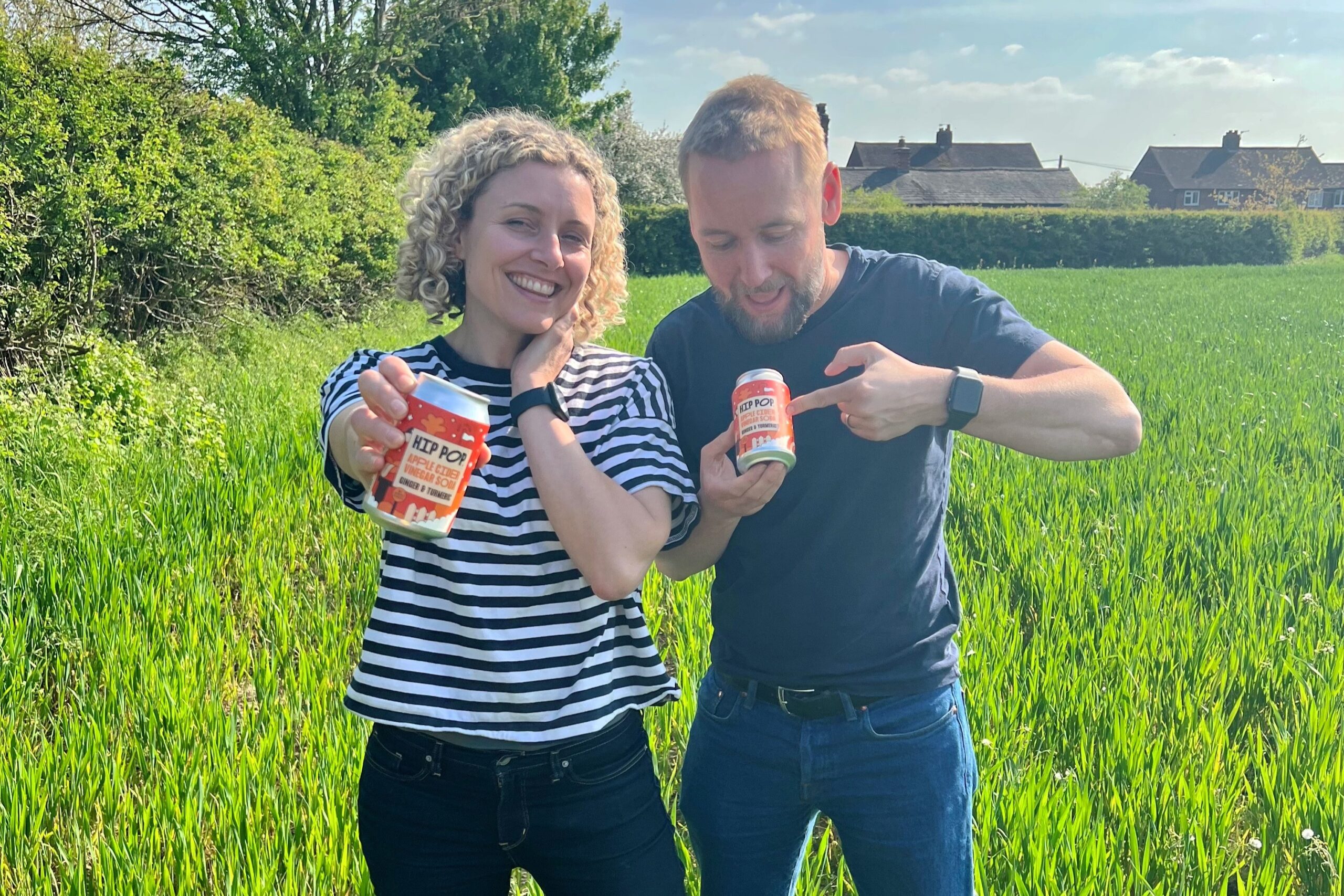A Cheshire based drinks business has increased their product selection in renowned food and drinks grocers, Booths, less than two years after securing their first retail listing.
Originally stocking four products from Hip Pop’s range of functional kombucha, consumers can now browse up to 10 products, soon to be 12, including their recently launched Living Soda, infused with apple cider vinegar and living cultures.
Hip Pop products have also been moved from the back of the store to the front, now including multipacks consisting of four cans in each pack.
Hip Pop’s co-founders, Emma Thackray and Kenny Goodman, secured the brand’s first major retail listing with Booths in the summer of 2021, following an impressive period of online growth. Their second retail listing was secured in 2022, with London’s leading department store, Harrods.
On the expansion, Emma said: “We are always looking for new ways to grow our business and achieve more brand recognition. One of the best ways we’ve been able to do this is by working directly with leading retailers, such as Booths.
“Our product range has grown substantially over the last 12 months, and we are excited to see an increasing number of Hip Pop products on the shelves.
“With new products in the pipeline, as well as moving into a larger brewery later this year, we hope this will open doors to further discussions with other retailers as our production capacity increases, allowing us to build long lasting relationships.”
Originally founded in 1847, Booths is now a leading grocery chain with 27 stores located across Northern England. Having secured second place in the list of the World’s greatest Food Retailers, the firm prides itself on working closely with British suppliers.
Based in Altrincham, Hip Pop’s team has grown substantially, and they now employ a team of 16, including Juliet Barratt, co-founder, and previous chief marketing officer of Grenade.
In the latter half of 2022, Hip Pop permanently slashed their prices by up to 50% to support new and existing customers throughout the cost-of-living crisis, and cemented a partnership with Manchester homelessness charity, Lifeshare, with one meal donated for every 24 cans sold.
The brand has received several industry accolades, including two stars at the Great Taste Awards, and the title of ‘Independent Drinks Producer of the Year’ at the Manchester Food and Drink Festival in 2022.
For more information, visit: www.drinkhippopr.com
